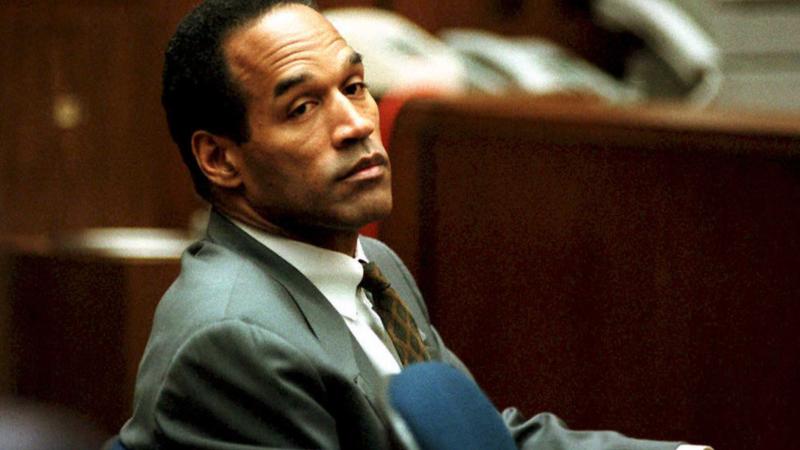Ellen to Elliot: How Wikipedia aids the rapid cementing of transgender identities
Rapid-fire editing squads help solidify gender "transitions" of public figures.
When the former Ellen Page, who gained fame playing the title role in "Juno," announced this week that she identifies as transgender and was adopting a male-centered identity with the new name "Elliot," it took only a few hours for dozens of pages on Wikipedia to be quickly updated to reflect that decision.
This type of digital biographical backfitting has become a familiar occurrence in recent years in response to the changed gender statuses of public figures.
Page, who in 2014 publicly came out as a lesbian, made the announcement in a tweet shortly after noon on Dec. 1. "Hi friends," the message read, "I want to share with you that I am trans, my pronouns are he/they and my name is Elliot."
"I feel lucky to be writing this," Page continued. "To be here. To have arrived at this place in my life."
Page's announcement was received with a mix of acclaim and neutral media coverage. "Elliot Page ... announces he is transgender," read one headline in the New York Times. "... Elliot Page Announces He Is Transgender," reported Elle. Actress Sarah Paulson tweeted: "Much respect ... and admiration." The pro-LGBTQ group GLAAD, meanwhile, wrote: "Elliot will now be an inspiration to countless trans and non-binary people. We celebrate him."
More quietly, however, a rapid-fire flurry of activity on the high-traffic reference website Wikipedia was helping to quickly erase nearly all evidence of Ellen Page in favor of the rechristened Elliot. Within just hours of the announcement, Page's Wikipedia page had been updated: "Elliot Page has recently announced that he is transgender therefore this page needed to be updated," the editor's note reads on the page's editing history.
An avalanche of edits has followed in the days since — far more activity than had been customary for Page's entry on the informational website. For the whole month of November the page received 10 edits, while in the three days following Page's announcement the entry was edited hundreds of times.
Many of the edits reflect a struggle to reconcile the arcane, difficult-to-wrangle terminology associated with transgenderism. "I don't think 'transgender male actor' is appropriate for someone who explicitly identifies as non-binary," one note reads. Another states: "We do not post assigned at birth names for transgender people, and we certainly do not bold them."
Within hours of Page's announcement, seemingly every page associated with the actor's work received edits: Entries for high-profile work such as "X-Men: The Last Stand," as well as lesser-known works such as "Marion Bridge" and "Pit Pony." Even entries as esoteric as that for the Vancouver Film Critics Circle Award for Best Actress in a Canadian Film have been updated to reflect Page's new identity: "Removed dead name," reads the latter's edit. ("Deadname" is a term LGBTQ activists use to describe the names transgender individuals used before their transitions).
A spokeswoman for the Wikimedia Foundation, which hosts the Wikipedia domain's many millions of pages in various languages, said the organization "generally does not set editorial policy on Wikipedia. That is, we don't write, edit, or determine what content is included on Wikipedia or how that content is maintained."
"Editorial policy is instead determined by volunteer Wikipedia editors, more than 280,000 of whom edit Wikipedia every month," she said.
She pointed Just the News toward Wikipedia's Manual of Style regarding name changes. "In the case of a living transgender or non-binary person, the birth name should be included in the lead sentence only if the person was notable under that name," the manual states. "If such a subject was not notable under their former name, it usually should not be included in that or any other article."
Regarding "identity," the manual states: "When a person's gender self-designation may come as a surprise to readers, explain it without overemphasis on first occurrence in an article."
Such changes have been observed elsewhere on the website in cases where celebrities have publicly come out with transgender or gender-variant identities.
Last year, for instance, within hours of British singer Sam Smith's Instagram announcement that he was "changing [his] pronouns to THEY/THEM," an editor on Wikipedia had "begun the process of changing all of [Smith's] pronouns to they/them."
On Aug. 22, 2013, meanwhile, shortly after convicted Army leaker Bradley Manning announced his desire to live as a woman named Chelsea, editors were already busy modifying Manning's page to reflect that new identity. In that instance, there was at least some pushback: One editor reverted some of the transition changes, writing in the editor's notes: "This is a bloke called Bradley Manning." (A subsequent editor reinstituted the transition edit, writing: "Manning has announced transition quite publically [sic].")
In the years since, Wikipedia editors have in some cases been protective of celebrities who come out as transgender. When J.J. Totah came out as a transgender female in 2018, the actor's page was edited after just a few hours; the following day the page's status was changed to "protected," meaning editors have to identify themselves when making edits.
The entry for now-Elliot Page, meanwhile, currently enjoys "extended confirmed protection," one of just a few thousand Wikipedia pages to hold that designation.
The Internet Movie Database, the encyclopedic reference source for the film and television industry, also rapidly made the shift to identifying Page as "Elliot." Page was listed in the database as "Ellen" at just before 9:00 a.m. on Dec. 1; by 7:00 p.m., the actor was identified as "Elliot."
IMDB last year was the target of significant criticism for its "deadnaming" policy, in which it would publish the previously-used names of transgender individuals without their consent. Following pressure from activists, the company changed that policy.
"When we become aware via our standard data contribution methods that an individual has changed their gender and/or name, we use the new gender and/or name on their page and credits," the database said in a statement at the time.
The company will still include with actors' credits on various productions the names they previously went by "in order to accurately reflect what was listed on-screen," the website stated.
The Facts Inside Our Reporter's Notebook
Links
- Page's announcement of her transition
- NY Times: Elliot Page is transgender
- Elle: Elliot Page is transgender
- Editing history for Page's entry on Wikipedia
- Editing history for "X-Men: The Last Stand"
- Editing history for "Marion Bridge"
- Editing history for "Pit Pony"
- Editing history for Vancouver Film Critics Circle Award for Best Actress in a Canadian Film
- Sam Smith's pronoun announcement
- Sam Smith's Wikipedia page edit history
- Bradley Manning's announcement on his transition
- Manning's Wikipedia page edit history
- J.J. Totah's transition announcement
- Totah's WIkipedia page edit history
- Page's IMDB listings: 9:00 a.m Dec. 1, 7:00 p.m. Dec. 1.
















